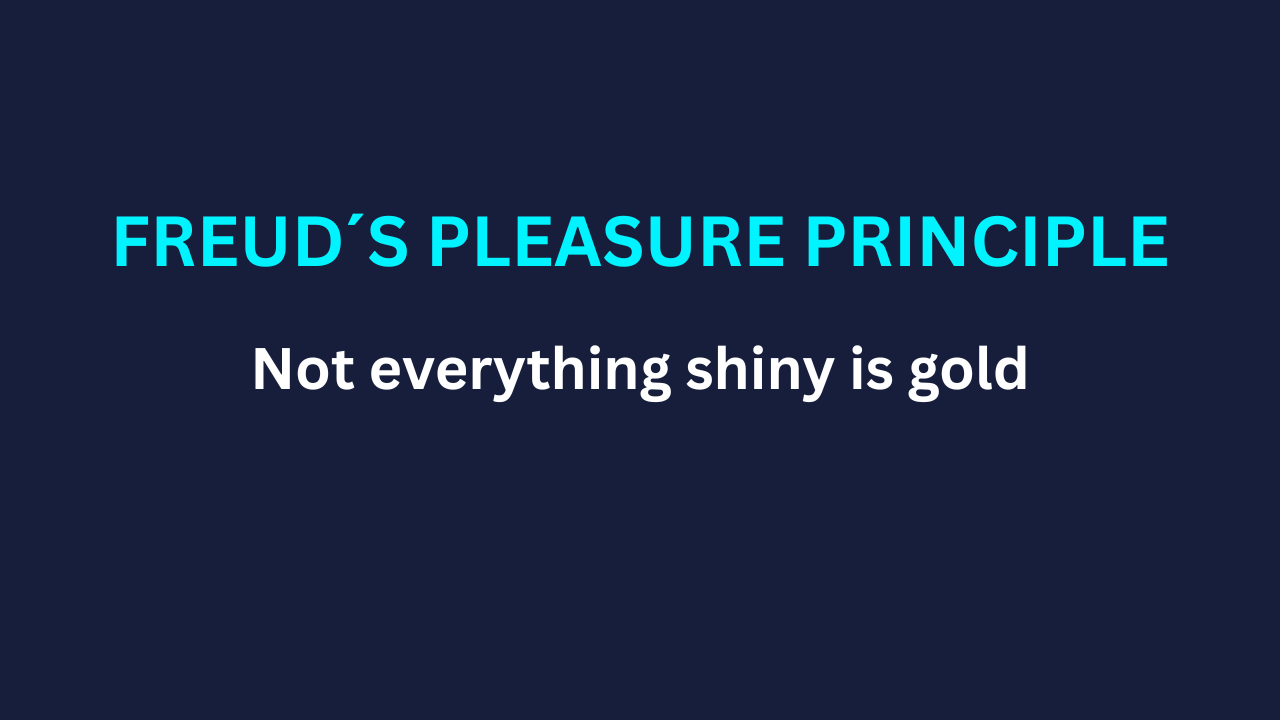
Freud’s Pleasure Principle & The Dopamine Trap
While the negativity bias keeps us locked in fear and hypervigilance, Freud’s Pleasure Principle pulls us toward the other extreme: the endless chase for pleasure and the immediate escape from discomfort. Both forces are deeply wired into our evolutionary psychology, ensuring survival in harsh, unpredictable environments.
But in our modern world of constant stimulation — notifications, likes, fast food, streaming — this ancient mechanism has been hijacked. Every ping of your phone, every scroll of your feed, floods your brain with dopamine, creating a false sense of achievement and connection. These fleeting highs condition us to prioritize instant rewards over meaningful, long-term fulfillment.
Instead of building the life we deeply desire, we get stuck seeking shallow hits of satisfaction, leaving us more distracted, anxious, and unfulfilled than ever.
This is the dopamine trap: a powerful, invisible force that keeps you busy but disconnected, active but aimless — caught between fleeting pleasures and neglected potential.
In this post, we’ll decode the Pleasure Principle, explore how the dopamine system governs your behavior, and show you how Psychosomatic Intelligence (PSI) helps you rewire these instincts for lasting satisfaction and success.
Understanding the Pleasure Principle
Sigmund Freud described the Pleasure Principle as the drive to seek pleasure and avoid pain. Neuroscience later confirmed this via the dopaminergic system, where dopamine surges reward us for pleasurable activities — whether it’s eating, scrolling, or winning.
However, modern society overstimulates this system, creating a loop:
-
Pleasure triggers dopamine.
-
Dopamine fades.
-
Craving rises for another hit.
Over time, the brain adapts by reducing dopamine receptors, leading to less satisfaction and more compulsive seeking.
How the Dopamine Trap Sabotages Goals
Instead of pursuing meaningful goals, your brain opts for:
-
Scrolling social media instead of writing that book
-
Binge-watching instead of building your business
-
Seeking likes over deep relationships
This keeps you in a low-energy, high-distraction state — disconnected from your deeper desires.
Breaking the Trap with PSI
Escaping the dopamine trap isn’t about denying yourself pleasure — it’s about retraining your brain and body to derive pleasure from meaningful, long-term rewards instead of shallow, short-term hits.
Here’s how PSI breaks the cycle:
-
Subconscious Alignment Most people consciously desire growth, but their subconscious mind is wired to seek comfort. PSI rewiring techniques, like belief reprogramming and self-hypnosis, bridge this gap by making delayed gratification feel emotionally rewarding. When your subconscious perceives long-term goals as safe and satisfying, your behavior naturally aligns.
-
Somatic Regulation The nervous system plays a critical role in reward regulation. Practices such as cold exposure, deep diaphragmatic breathing, and vagus nerve activation recalibrate your baseline dopamine levels. Research shows that these practices increase resilience by boosting baseline dopamine, reducing the dependency on quick dopamine spikes.
For example, regular cold showers have been shown to elevate baseline dopamine by over 250%, leading to a more stable mood and enhanced motivation — a physiological buffer against the cravings for cheap rewards.
-
The NeuroGoal Sequence This PSI practice integrates visualization, breath, and touch to anchor your long-term goals in the body. By vividly imagining success, breathing deeply to calm the system, and physically anchoring the emotion with touch, you teach your brain to associate future achievements with present-moment pleasure. This creates a neurological bridge between the effort you invest today and the satisfaction of your future vision.
By engaging these methods, PSI doesn't just help you resist the dopamine trap — it rewires your pleasure circuits to align with your highest aspirations.
Over time, this transforms the Pleasure Principle from a mechanism of sabotage into a powerful ally, driving you not toward distraction, but toward disciplined, joyful progress.
Up next, we’ll explore Hedonic Adaptation — why happiness from achievements fades and how to make it last.
Ready to escape the dopamine trap and build lasting fulfillment? 👉 Schedule a free strategy call

